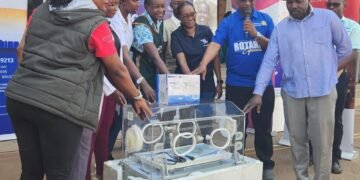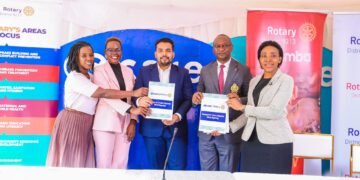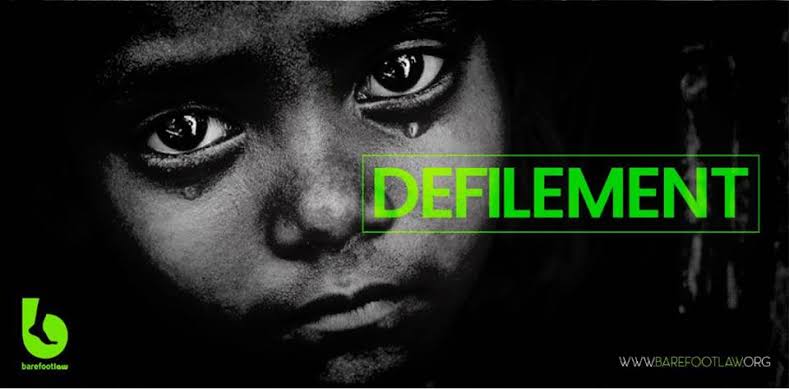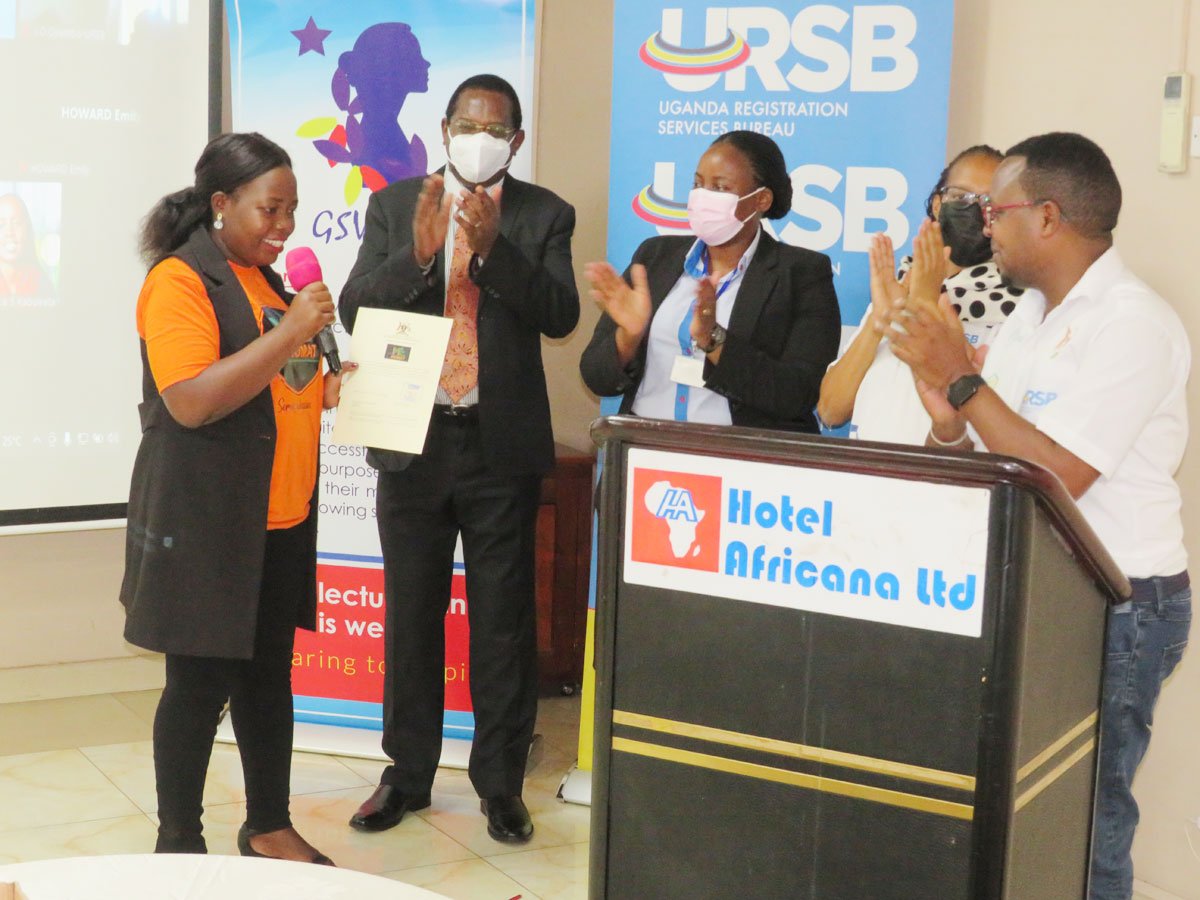For many years, the Ugandan government has been grappling with rising cases of theft of medicines in public health facilities.
To address this challenge, National Medical Stores (NMS), a government agency which delivers medicines and supplies up to the health facilities’ doorsteps across the country, introduced a system called Last Mile Delivery (LMD).
Officials say the system has improved efficiency in service delivery as health facilities now receive medicines on time, in good condition, in the right quantities and by the right people.
NMS delivery clerks have been trained to handle and transport drugs to the end user. They have greatly contributed to the success of LMD.
Among them is Humphrey Kuyate. He has been delivering medicines for the last 10 years having started this job in 2009.
“I deliver drugs to the lower health facilities. I currently do last mile delivery in Hoima district,” he says.
Kuyate adds that he is proud to be part of the NMS team that helps Ugandans to receive drugs effectively at the grassroots facilities.
He explains that when NMS trucks deliver drugs and medical supplies at the district, they (drugs) are stored in containers or stores.
Following a schedule, the delivery clerk ensures the medicines are delivered at the lowest health facilities in the right quantities and good condition.
Initially, NMS trucks used to deliver drugs at the district health office stores from where they were taken to the lowest units by that office but with time, NMS took over delivery to the end user. This created space for leakages.
Kuyate now says that people are happy and appreciate the great improvements in service delivery brought about by the last mile delivery.
“They excitedly wait for us. They even volunteer to help us offload the medicines,” he shares.
“Representatives including Local council chairpersons testify that they now receive drugs on time and patients get them as well,” he asserts, noting that, “Also, the health facilities’ in-charges are comfortable and cooperate well with us.”
Last mile helps with accountability
Kuyate explains he works with private transporters contracted by NMS to deliver the medicines from district headquarters to regional referrals, general hospitals, health center 11s, 111s and IVs.
“We deliver to the facilities in cycles. In Hoima we deliver to 24 facilities,” he says.
NMS has a form that captures all the discrepancies and this helps to iron out issues of accountability. Also, drug excesses can be seen.
“We also work with supervisors from the district who oversee our activities,” he adds.
Kuyate affirms that he ensures medicines and supplies are counted well at every step, to avoid errors that can be exploited to steal medicines.
At the facility, they offload the medicines and the in-charges receive the cartons containing medicines accompanied by delivery notes specifying contents in each carton.
The in-charge and the representatives (there is always a committee) open the cartons to confirm that medicines received are exactly what is indicated on delivery notes and are in good condition. After, they sign and stamp the delivery notes.
At the end of the exercise, Kuyate reports back to NMS with verified documents to confirm that the drugs reached the end users.
“We face a challenge with facilities’ store keepers who don’t want to work on weekends and public holidays,” he highlights.
They on several occasions deliver the drugs only to find locked up stores and when they try to call the keepers, they either refuse to show up or take time to report at the facility and this causes delays.
“We have entered in agreement with some of them to be available. We also try to notify them about our delivery timelines,” he says.
Who is Kuyate?
The 40 year old is a father of three. He joined NMS in 2009, the same year he got married.
Then, he had a diploma in business studies from Makerere Business Institute but he had the determination to scale up the education ladder.
“I used my salary to pursue bachelors in procurement and logistics from Ndejje University,” says Kuyate who started his education journey at Umagen barracks primary school before enrolling at Nkoma SSS for his O levels and Manafwa High school for his A levels.
Kuyate is grateful to the management of NMS for the different training he has benefitted from in customer care, occupational safety and health, drug management and supply among others.
What keeps him going?
Kuyate, who hails from Mbale district, says the passion to save lives is at the heart of his work.
“Everytime I deliver medicine, I think about the thousands of lives we are saving,” says Kuyate, adding, “It is the responsibility of everyone along the supply chain to ensure medicines for our people, especially those in rural areas, reach intended beneficiaries.”
8. Dr Oyaka: Protecting Food Supplements to Save West Nile Kids from Malnutrition
February 22 2023 According to a report by UNICEF, over 30,000 children in West Nile have been screened for malnutrition. In several districts, severe acute malnutrition, wasting and stunting in children are highly prevalent.
The 2016 Uganda Demographic Health Survey shows that malnutrition in the region stood at a towering 10.4%.
However, Dr Robert Oyaka, regional nutritionist based at Arua regional referral hospital credits the National Medical Stores (NMS) for the supplements that have helped to save lives of many malnourished children.
He, however, says it is the role of doctors, health in-charges and other concerned authorities to ensure the supplements are well utilized.
This is because reports have indicated that some of these supplements have previously ended up on the market in Eastern DR Congo.
This is Oyaka’s story
There is over malnutrition and under malnutrition in several parts of northern Uganda. In the West Nile, we are mainly dealing with cases of malnutrition.
There are also cases of micronutrient malnutrition. To tackle this, we give the patients vitamin A, albendazole and other medicines.
In Arua hospital, the majority of the patients receive malnutrition care, OTC (Outpatient therapeutic care) and inpatient therapeutic care.
We give the outpatients Replepinuts or Rotafa on a weekly basis but this comes after passing the hepatitis test.
However, on some occasions, some children develop medical complications in addition to malnutrition. These include; skin, eyes, heart problems and dehydration among others.
We admit and manage their complications as well as feeding. Good nutrition is vital in building children’s immunity and antibodies to enable them fight off any infections.
We put the children on supplements supplied by NMS.
Unfortunately, our supplies come through the regional referral yet my department is independent and therefore supposed to receive its own deliveries separately.
But still, these are shared with neighbors including Zombo, Pakwach, Nebbi and Malacha districts who also have high cases of malnutrition but not under the programme. We also supply main hospitals and facilities within the refugee settlements.
Anyhow, the supplementary feeding programme has helped to bring down the cases of malnutrition. Our wards used to be congested but these days we have less than 10 admissions.
Many under-fives (Under 5 years) have benefitted from cereals porridge and milk.
This has also helped to stabilize nutrition starters and on the other hand, reduced the burden of treating other issues related to malnutrition. We ensure to screen the children and take good care of them to heal better.
During hunger periods; around June and July, the cases go up but when communities start harvesting food, the cases drop. And during floods, diarrhea cases go up.
Before the supplements, it was too expensive to improvise locally. We would spend over sh150, 000 a day on a meal. But now we feed the children every two hours.
We are strengthening feeding intervals, hygiene and supervision of staff. The training has helped.
We are also looking at reducing the mortality rate from 7% to at least 5% or less.
Way forward
But I am also of the view to strengthen the Village Health Teams (VHTs) so that cases can be detected and handled in the early stages.
This helps to save the government and NMS the budget of buying these supplements.
There also is a need for more sensitisation campaigns by local authorities to educate parents in West Nile on proper feeding of children to stem the rising cases of malnutrition.
Prevention is better than cure. If we can halve the number of malnourished children, we would save a lot of taxpayer’s money or these funds can be invested in agriculture to boost food security in the region.

















